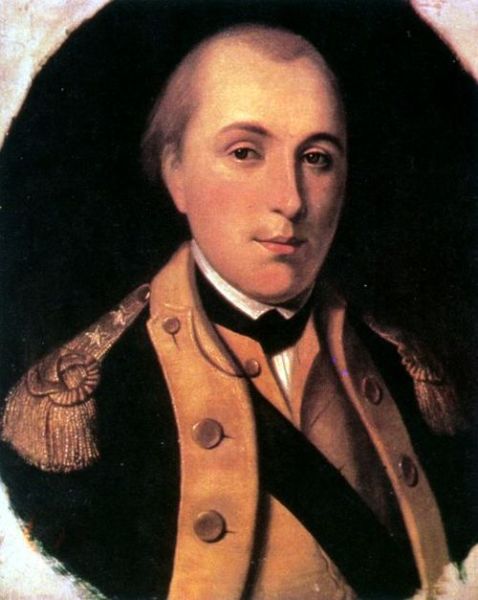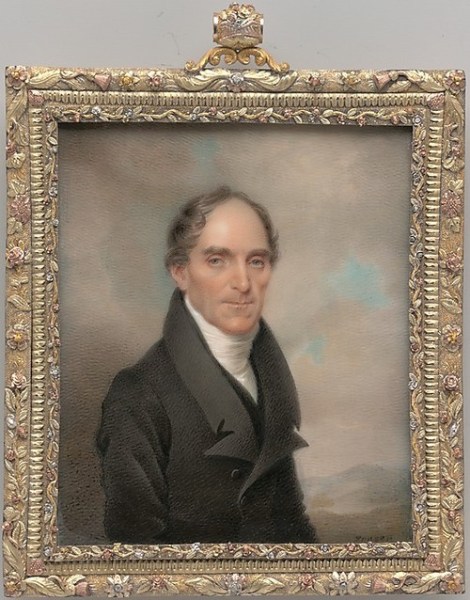The Strange, True Story of Dr. Francis Kinloch Huger and the Marquis de Lafayette
Every student of American History should know the name, Lafayette, the French nobleman, who accidentally landed at the Huger (pronounced “You-Gee”) plantation 50 miles north of Charleston. Major Benjamin Huger invited the Marquis to stay the night at his plantation (some sources say several nights). The story was passed down through generations of Hugers. From there Lafayette and company made their way to Philadelphia to join the Continental Army of General George Washington just in time for the Battle of Brandywine, during which Lafayette was wounded in the foot or leg. Lafayette would go on to play a major role for the American Patriots during the war and General George Washington worshiped Lafayette as if he were a son. Washington honored him with the rank of General when Lafayette was only 19, earning him the nickname, “The Boy General”.

When the war in America ended in 1783, Lafayette returned to France just in time for the French Revolution. A moderate in politics, Lafayette supported a constitutional monarchy, which alienated him from both royalists and radicals. Despite this, during the Wars of the French Revolution, when France declared war on Austria, Lafayette became a general at the head of one of the French armies. Then the political situation in France changed and the radicals seized the reins of government. Lafayette was declared an enemy of the Revolution and he realized he faced the guillotine if he returned to Paris, so he crossed into Austria but was captured by the Austrians, who didn’t trust his opposition to absolute monarchy. Eventually Lafayette was imprisoned in the Castle of Olmutz, which is in today’s Czech Republic.

After completing his medical studies in London (c.1794), Dr. Francis Huger of Charleston decided to tour Europe and happened to meet one Dr. Julius Erich Bollman from Hanover (a German state). Bollman had played a major role in helping members of the French aristocracy escape the guillotine and seek asylum in England. Bollman and Dr. Huger became friends and together hatched a scheme to help Lafayette escape his incarceration. This was in the year 1794. Young Dr. Huger had grown up hearing stories of the great Lafayette who had stayed at his ancestors’ plantation in 1777. Huger wanted to help the French nobleman get his freedom since Lafayette had helped America achieve its freedom from Great Britain.
Together Bollman and Huger concocted a scheme to help Lafayette escape and get him to America. They bribed a guard into letting them pass letters into the prison to Lafayette. The letters appeared to be rather innocuous in the main text, however in the margins Huger would write in lemon juice (the original invisible ink) explaining their intentions to Lafayette. Lafayette communicated to the doctors that he was taken out daily for a walk accompanied by 3 Austrian guards. Lafayette wrote to the doctors that the driver was an “over-large, clumsy man” and the other two guards were no threat at all as they were “a pair of crippled old soldiers, no longer good for anything except guard duty”.
On the agreed-upon day, November 4, 1794, Lafayette was taken out for his “exercise” while Doctors Huger and Bollman followed behind his carriage at a safe distance. Lafayette got out of his carriage for his walk and seeing the approach of the doctors, he grabbed for the sword of the “clumsy man” who, it turned out was quite scrappy. The corporal fought back stubbornly and at one time had Lafayette on the ground strangling him, whereupon Dr. Huger knocked the guard off of Lafayette and yelled for him to get onto one of their horses and “get to Hoff!” The problem was Lafayette had no idea where Hoff was and he wandered for days attempting to get to Hoff and then to England. His escape was to be temporary. Meanwhile the other two guards rode back to Olmultz for help. Lafayette was lost and was soon captured by a group of peasants who were very suspicious of this thin man covered with mud and blood, and who attempted to speak German with a strong French accent while attempts were made by Lafayette to bribe them. Instead, the peasants turned him over to Austrian authorities. Lafayette would spend 5 years in prison and Doctors Huger and Bollman were captured and thrown into the dungeons of the old castle prison, Huger in solitary confinement shackled to the walls.
The daring plot had failed. Huger and Bollman would spend about 8 months in prison, given a light sentence thanks to some judges who were apparently paid to grant them leniency.
Huger and Bollman eventually returned to the U.S. and in 1825 Lafayette made a final visit to America. Bollman became involved in the Aaron Burr conspiracies before his death and Huger married the daughter of Thomas Pinckney, an important diplomat from Charleston.
During Lafayette’s final tour of America in1825 he got in touch with Dr. Francis Huger and asked him to be his traveling companion. Once in Charleston the Hugers held a reception for Lafayette who demanded that Dr. Huger be present and so both were honored at the Huger house at 34 Meeting Street in 1825.
Strangely enough I came across this story when I was researching another story about an incident which occurred between 1794 and Lafayette’s visit in 1825. A piece of decorative masonry fell from the Daniel Huger house at 34 Meeting Street and hit Dr. Francis Huger in the head, fracturing his skull. Of course he did recover in time for the Frenchman’s visit and went on to be one of Charleston’s leading physicians and state legislator, dying in 1855. One of his sons was the Confederate General Benjamin Huger.
Most of my information came from mastermason.com. Lafayette was a brother Mason. It is largely corroborated by another source found online, www.heritage-history.com.
